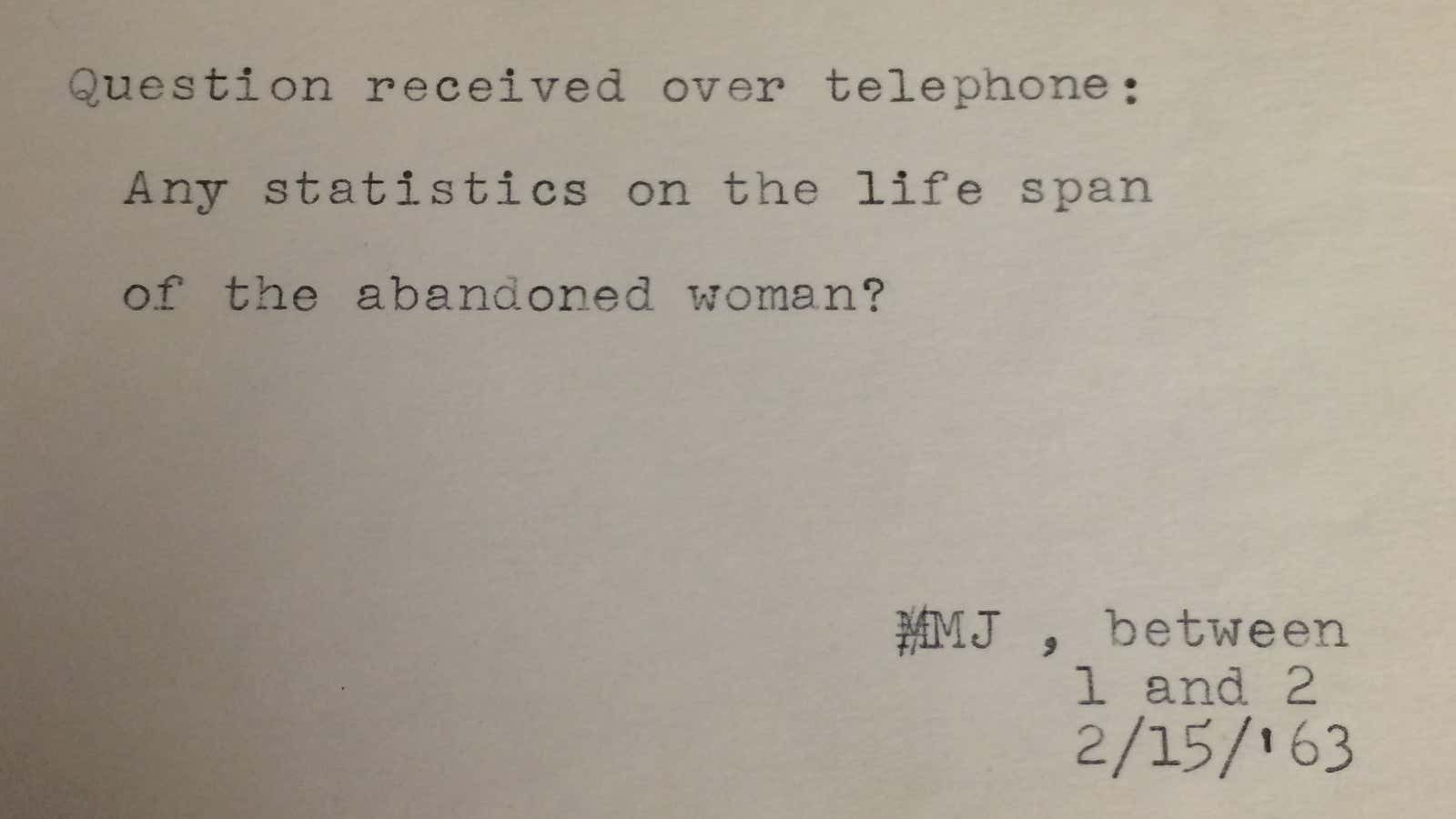Does the Pope have to be a virgin?
If you’ve got fingers and a smart phone, it’s a simple matter of Googling to find out. (The answer is: No.) But there’s another, more congenial service that takes only a few jabs of the finger: Just call 917-ASK-NYPL, and a live librarian will try to answer your question, using vast archives collected over 120 years.
The New York Public Library’s questions desk serves as a catch-all for the venerable library system’s 92 locations. Though its purpose is logistical (How do I download ebooks from the library?), for many, it’s basically a human Google (How many British monarchs have been left-handed?).
Queries about news, science, and history come in about once an hour. People dial in with basic grammar questions or to figure out what Pinterest is. And a few callers treat the line like their own personal library-by-correspondence: Rosa Caballero-Li, manager of Ask NYPL, says there are at least five callers who phone-in frequently enough that she recognizes them. “They have us on speed dial,” she says.
Set up in the 1960s, the line is manned by nine librarians and information assistants. The team gets a lot of calls from people who want to fact-check things they’ve heard on the news, says Caballero-Li. “Around the time that Prince died, we had a caller who wanted to know if they had found out what the cause of his death was,” she recalls. Like everyone else, she says, “We just kept checking to see what the update on that was.”
“I would say like 75 to 80% are all about library services,” says Caballero-Li of the calls the team receives.
Since July 2015, the team has answered just shy of 60,000 phone calls. (They also fielded 20,000 emails, 17,000 chat messages, and 500 text messages. The department also gets one or two snail mail inquiries a month.)
Even before the establishment of Ask NYPL—and long before the creation of Google—people asked all sorts of questions of the NYPL’s librarians. The library keeps records of their most absurd and memorable questions, from phone calls and in-person queries, dating as far back as the 1940s.
We posed a few of the more inscrutable vintage queries to today’s question-answering team, to see how they would explain the world to their inquisitive patrons.
Does anyone have a copyright on the Bible? (November 14, 1979)
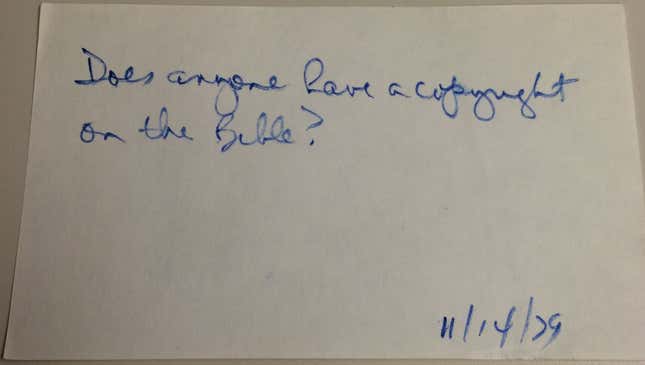
“It probably came out before 1923, so no,” Caballero-Li says, laughing. But she puts me on hold a few minutes and returns, amending what she said: Newer edited versions and translations of the Bible are under copyright.
When did Moses first come into the public eye? (December 31, 1963)
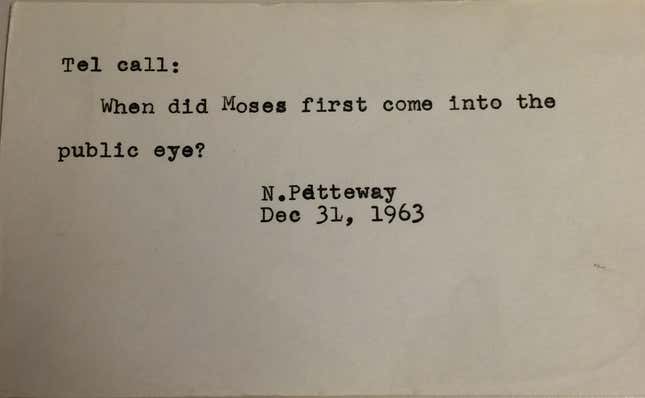
Caballero-Li runs a search on the library’s reference database, Credo, for “Moses.” “The narrative in the Bible is the chief source of information on his life,” she reads, “so you can say that perhaps when people started reading the Bible, that’s when they became aware of him.”
What does it mean when you dream you’re being chased by an elephant? (May 27, 1947)
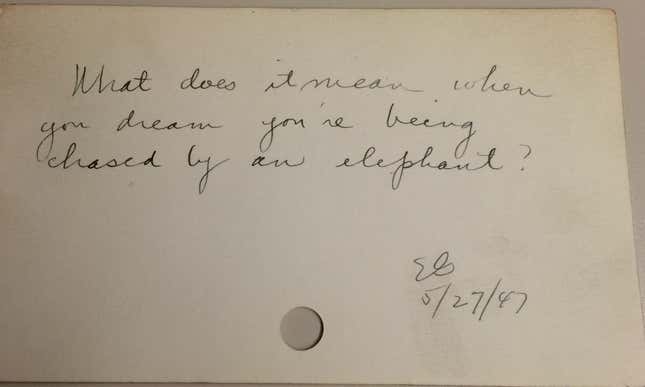
Caballero-Li puts me on hold to look for a dream dictionary. She returns shortly, without having found a nearby copy. “I would say there are many different interpretations of dreams,” she says, pointing out one she likes from the Daily Mail. She reads, “You may be feeling whole and complete right now but perhaps overwhelmed by this in some way.”
Wanted: a list of historical characters who were at the right place at the right time (September 4, 1946)
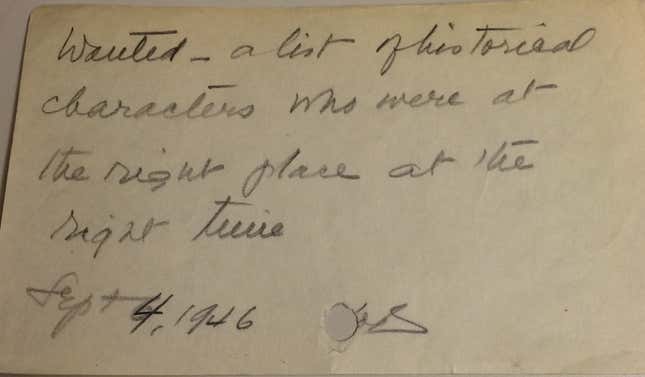
After a brief conference with her team, Caballero-Li says the hardest part of answering this question was figuring out what the hell I meant. Still, she recommends a book called In the Right Place at the Right Time: Twenty-six Prominent Americans.
How many neurotic people in the US? (December 30, 1946)
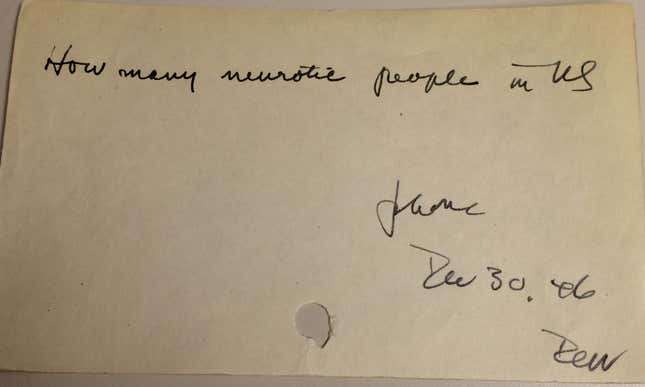
In response to my query, Caballero-Li Googles the question. She reads to me over the phone from an article from Psychology Today: It’s hard to pin down a number of people who are neurotic, and the definition has changed over time, she concludes, so it’s hard to say.




